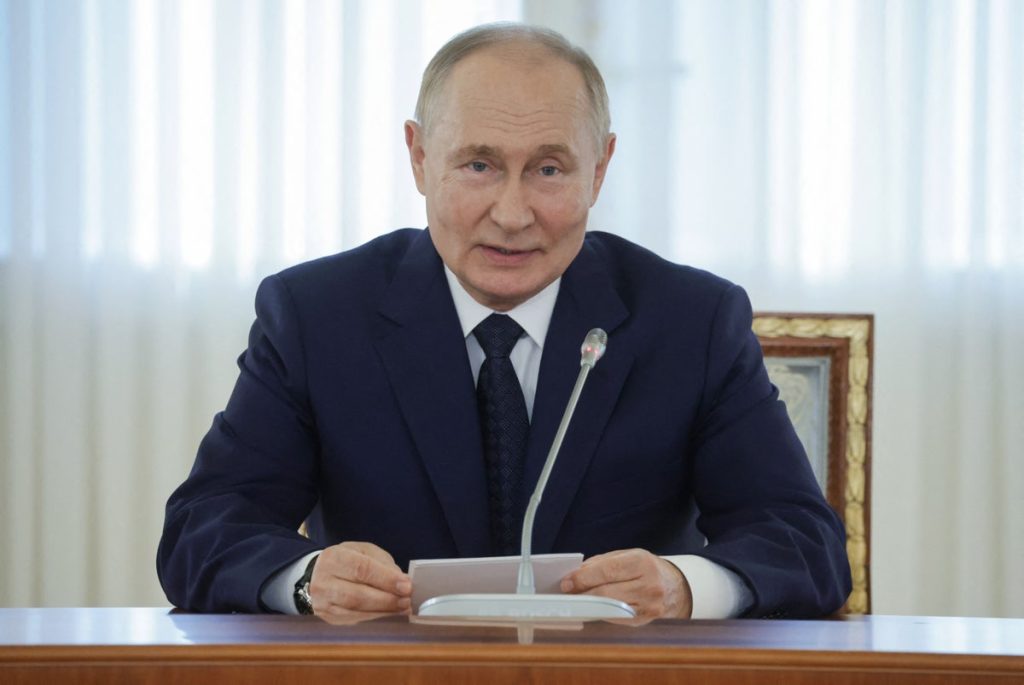Russia accuses six British diplomats of spying
3 min read

Russia has expelled six British diplomats, accusing them of espionage and citing documents that allegedly reveal Britain’s involvement in a “strategic defeat” inflicted on Russia. The decision to revoke their accreditation was announced by Russia’s Federal Security Service (FSB), which claimed the diplomats were engaged in intelligence activities aimed at undermining Russian interests.
In response, the UK Foreign Office has dismissed these accusations as “completely baseless,” noting that the diplomats in question had already departed Russia several weeks prior. The timing of the expulsions coincides with Prime Minister Sir Keir Starmer’s visit to Washington, where he is set to discuss the ongoing conflict in Ukraine with US President Joe Biden. Among the topics on the agenda is the potential approval for Ukraine to use missiles against targets within Russia. Russian President Vladimir Putin has warned that such an escalation would equate to direct involvement by NATO countries in the conflict, prompting a serious response from Moscow.
Putin, speaking on state television, indicated that if NATO countries engage directly, Russia would take appropriate measures based on the threats posed. The UK Foreign Office, however, stated that Russia’s actions were a reaction to the UK’s measures against Russian state-directed activities. “We are unapologetic about protecting our national interests,” a spokesperson asserted.
Former national security advisor Lord Peter Ricketts criticized the accusations against the British diplomats as “trumped up” and suggested that they were a retaliatory move in response to the UK’s support for Ukraine. He posited that the expulsions were an attempt by Putin to “intimidate Western politicians” ahead of the high-profile meeting in Washington.
Diplomatic accreditation, which is granted by the host country to recognize a person’s diplomatic status, is crucial for maintaining official diplomatic relations. Without it, diplomats lose their formal status. The FSB’s announcement on Friday detailed that the diplomats had been involved in intelligence operations and were allegedly working to cause a “strategic defeat” for Russia. Russian foreign ministry spokeswoman Maria Zakharova supported the FSB’s claims, asserting that the British embassy had exceeded the bounds established by the Vienna Conventions, a key UN treaty governing diplomatic relations.
Zakharova further warned that if other British diplomats were found to be engaging in similar activities, they too would face expulsion. The FSB’s decision has been met with concern, as Noele Crossley, an associate professor in international security, described it as a troubling indicator of worsening bilateral relations. Crossley noted that the diplomatic crisis reflects broader geopolitical tensions and hinted that more hostile rhetoric from Russia might follow.
Prof. Mark Galeotti, an expert on modern Russia at the Rusi think tank, expressed alarm over the expulsion, describing it as detrimental to an already strained diplomatic presence. He highlighted that while previous Soviet leaders occasionally expelled diplomats, they understood the importance of maintaining robust diplomatic connections. Putin’s actions, according to Galeotti, represent a more drastic shift, which is concerning.
The expelled diplomats were identified and featured on Russian state television earlier on Friday. The trend of diplomatic expulsions has intensified since Russia’s full-scale invasion of Ukraine in February 2022. Earlier this year, British diplomat Capt Adrian Coghill was given a week to leave Russia shortly after the Russian defense attaché was expelled from London on allegations of espionage.
In the meantime, UK Foreign Secretary David Lammy announced a new £600 million aid package for Ukraine, aimed at addressing the country’s humanitarian, energy, and stabilization needs. This announcement came on the heels of a recent summit in Germany, where the UK committed to providing additional short-range missiles to Ukraine, complementing a $250 million military aid pledge from the US.
As diplomatic tensions continue to escalate, the international community remains focused on navigating the complex dynamics of the conflict and the broader geopolitical ramifications.